Research News
19 January 2022
Working on accelerating the energy transition
On its 180th anniversary in January, TU Delft will reflect on its role in the energy transition, and especially on how to accelerate it. This is a complex issue with the ultimate goal of a safe and reliable energy system. A team of 10 scientists gives this acceleration a face.
17 January 2022
Effectiveness of 2G and 3G has declined

At the request of the Dutch Ministry of Health, Welfare and Sport, researchers from TU Delft, UMC Utrecht and Populytics investigated the extent to which the various types of COVID certificates (coronatoegangsbewijs, CTB) can help to prevent the spread of COVID-19 in society. The 3G (vaccinated, recovered, tested) and 2G (vaccinated, recovered) rules are currently a lot less effective in curbing the spread of the virus than they were two months ago. A 1G policy (only people who have recently tested negative are given access) is much more effective. But, even if a 1G policy were to be introduced today, the reproduction number would not drop below 1.0.
14 January 2022
Targeted innovation policy can reduce the cost of the energy transition

The cost of new technologies such as those used to make green hydrogen can quickly be reduced if the government applies a stable and targeted innovation policy. This is according to Paulien Herder, professor of Energy Systems and Dean of the Faculty of Applied Sciences. She is also a Topteam member in the Energy Top Sector. As the Captain of Science she represents knowledge institutions. Herder was also closely involved in the GroenvermogenNL proposal for green hydrogen and green chemistry that was accepted by the National Growth Fund.
11 January 2022
ERC Starting Grants for two 3mE projects
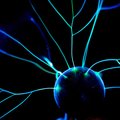
Sabina Caneva and Richard Norte, researchers of the department of Precision and Microsystems Engineering, have been awarded an ERC Starting Grant by the European Research Council.
07 January 2022
Dies Natalis TU Delft

On 8 January, 2022, TU Delft celebrates its 180th anniversary. We will mark this on 14 January during our Dies Natalis ceremony, when we will also kick-off of our anniversary year. From that day on, everyone can participate in a 180-day anniversary programme devoted to the energy transition.
16 December 2021
City Deal Openbare Ruimte

13 December 2021
TU Delft collaborates on development of Amsterdam data heat network

TU Delft is launching – in collaboration with infrastructure specialist Firan, the City of Amsterdam and the AMS Institute – the ‘Digital Heat’ project in the Metropolitan Region of Amsterdam (MRA). The goal is to develop a future-proof low temperature heat network in Amstel III Zuid using residual heat from a nearby data centre.
12 December 2021
The landslide forecast coming to you from space
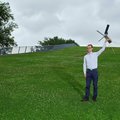
Catching the breeze may bring you gold but sail too close to the wind and you’ll miss the boat. Combined with a sailor’s intuition meteorologist Sukanta Basu’s highly detailed wind forecast may well help the Dutch sailing team secure a win at the Olympics this year.
09 December 2021
TU Delft to help green the maritime sector with SH2IPDRIVE

Twenty-five companies and knowledge institutes in the maritime industry have joined forces in SH2IPDRIVE: Sustainable Hydrogen Integrated Propulsion Drives. In this innovation programme, they will work together to make hydrogen shipping a reality.
08 December 2021
New method predicts drug response of cancer patients
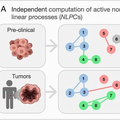
Researchers from Delft University of Technology and the Netherlands Cancer Institute (NKI) have developed an algorithm to predict patient response to anti-cancer drugs. This allows us to identify more rapidly if some drugs can have a positive effect on a specific patient, even for complicated medicines such as chemotherapies where response is typically hard to predict. This method is called TRANSACT and makes use of the wealth of data previously collected through research with cell lines.
03 December 2021
Grip or slip; robots need a human sense of touch

How can humans instantly estimate the slipperiness of a surface and adjust their gripping, for instance when picking up a wet glass? Researchers have demonstrated that a (radial) strain of the skin of the fingertip is involved in the perception of slipperiness during initial contact. Robotics could use this information, for instance to improve prosthetics and grippers. The results will be published in PNAS.
02 December 2021
Fitrim: Wheelchair power to the people
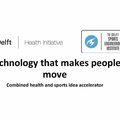
Just imagine that you just drove your wheelchair for half an hour over bumpy roads and some grassy spots, only to have your fitbit or smartphone activity tracker inform you that you took only 50 steps, burned virtually no calories and that you shouldn’t be such a couch potato. ‘There has to be a better way,’ Marit van Dijk thought. A seed grant from Delft Health Initiative and the TU Delft Sports Engineering Institute makes the difference.
02 December 2021
Self-experimentation for long-lasting physical activity promotion in cardiac rehabilitation

A heart-attack may very well be the ultimate wake-up call when it comes to changing your lifestyle and behaviour. Even so, four years on most cardiac patients have relapsed to a very low fitness and physical activity level. Explorative self-experimentation, developed by Jos Kraal and colleagues, makes changing physical activity behaviour for cardiac patients more personal.
30 November 2021
Mud research requires multidisciplinary approach
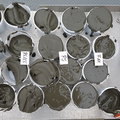
Mudnet, the Delft-based multidisciplinary team consisting of marine and civil engineers researching the properties of mud, won the NWO ‘Team Science Award’ this week. The team was praised for using a great diversity of expertise in subject.
30 November 2021
The formation of kidney stones on a microscale
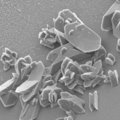
Researchers from TU Delft developed a method to watch the formation of kidney stones on a microscale, in a so called microfluidic platform. By slightly adjusting the pH and the concentration of specific minerals, the formation could be slowed down or inhibited completely. The research is now published in Biomicrofluidics.